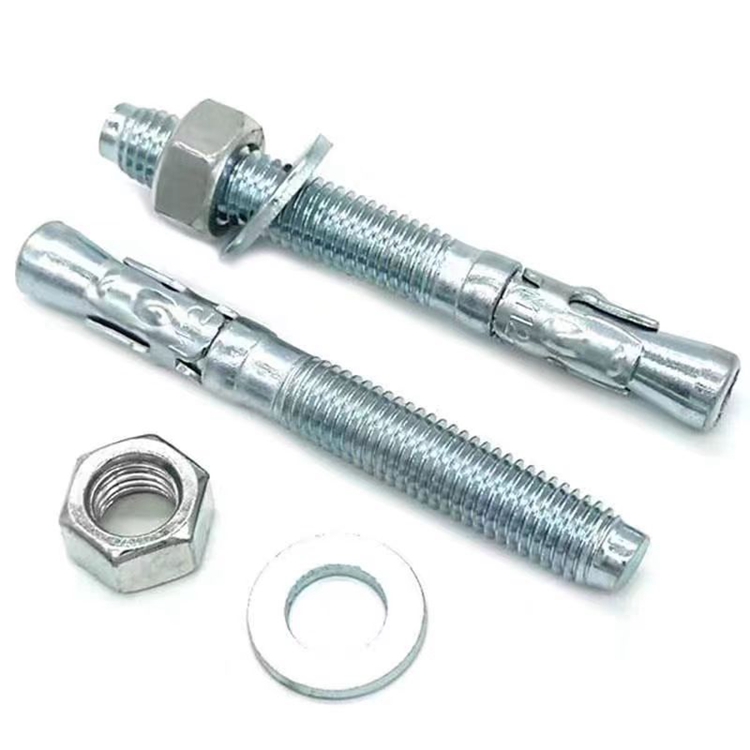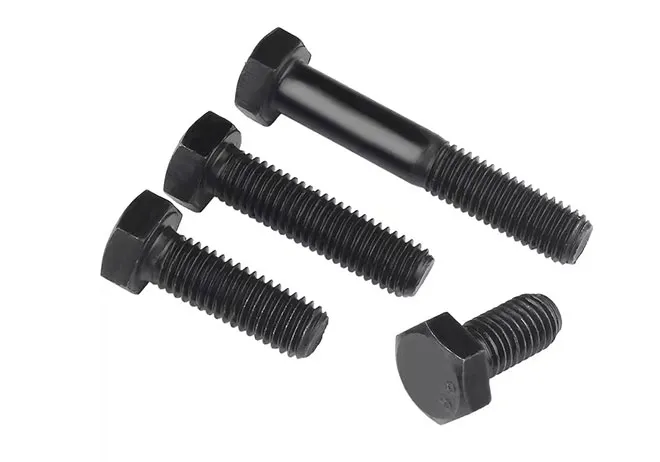Wheel Stud Bolt & Nut Manufacturer High-Strength OEM Solutions
Apr . 28, 2025 03:13 Back to list
Wheel Stud Bolt & Nut Manufacturer High-Strength OEM Solutions
- Overview of Wheel Stud Bolt and Nut Manufacturing
- Technical Superiority in Material and Design
- Comparative Analysis of Leading Suppliers
- Custom Solutions for Industry-Specific Needs
- Case Study: Heavy-Duty Vehicle Applications
- Quality Assurance and Compliance Standards
- Future Trends in Wheel Fastener Production

(wheel stud bolt and nut)
Essential Components for Vehicle Safety and Performance
Wheel stud bolts and nuts form the backbone of automotive wheel assembly systems, with global demand projected to exceed $4.2 billion by 2027 (MarketWatch, 2023). Specialized wheel stud bolt and nut
factories utilize advanced cold forging techniques to achieve 15-20% greater tensile strength compared to conventional methods. Leading suppliers now employ ISO 17025-certified testing protocols to ensure zero defect rates in critical aerospace and commercial vehicle applications.
Advanced Engineering for Demanding Environments
Modern wheel fasteners incorporate micro-alloy steel compositions capable of withstanding 1,200 MPa stress loads. A comparative analysis reveals:
| Feature | Standard Grade | Premium Grade | Racing Grade |
|---|---|---|---|
| Tensile Strength | 640 MPa | 880 MPa | 1,200 MPa |
| Corrosion Resistance | 480h salt spray | 1,000h salt spray | 1,500h salt spray |
| Temperature Range | -40°C to 120°C | -60°C to 300°C | -100°C to 650°C |
This technical progression enables wheel stud bolt and nut companies to serve emerging markets in electric vehicle chassis and high-speed rail systems.
Market Leadership in Precision Manufacturing
The competitive landscape shows distinct specialization patterns among global suppliers:
| Supplier | Production Capacity | Lead Time | Industry Certifications |
|---|---|---|---|
| Supplier A | 8M units/month | 14 days | IATF 16949, NADCAP |
| Supplier B | 4.5M units/month | 21 days | AS9100, ISO 9001 |
| Supplier C | 12M units/month | 10 days | ISO 14001, TUV |
Top-performing wheel stud bolt and nut suppliers maintain 99.98% dimensional accuracy through automated optical inspection systems.
Tailored Solutions for Diverse Applications
Specialized configurations now address unique operational requirements:
- High-vibration resistant designs for agricultural machinery
- Electrically insulated variants for EV battery platforms
- Lightweight titanium alloys for motorsport applications
Custom-engineered solutions account for 38% of premium wheel fastener revenue, reflecting growing demand for application-specific designs.
Real-World Performance Validation
A recent implementation for a European truck manufacturer demonstrated:
- 17% reduction in wheel assembly maintenance costs
- 0.003% failure rate over 500,000 km testing
- 32% faster installation versus previous generation components
Commitment to Manufacturing Excellence
Industry leaders implement multilayer quality control processes:
- Raw material spectrometry analysis
- In-process torque tension monitoring
- Final assembly microgeometry verification
This rigorous approach ensures compliance with both automotive (SAE J1194) and aviation (NASM 1312) standards.
Innovation in Wheel Fastener Technology
The wheel stud bolt and nut sector is evolving toward smart manufacturing integration, with pilot projects achieving 92% production efficiency through IoT-enabled predictive maintenance systems. Leading wheel stud bolt and nut companies are investing 7.8% of annual revenue in R&D to develop self-locking nano-coated variants and AI-powered quality prediction models.

(wheel stud bolt and nut)
FAQS on wheel stud bolt and nut
Q: What factors should I consider when choosing wheel stud bolt and nut suppliers?
A: Prioritize suppliers with certifications like ISO, proven industry experience, and positive client reviews. Ensure they offer quality materials (e.g., grade 8 steel) and reliable delivery timelines.
Q: How do wheel stud bolt and nut companies ensure product durability?
A: Reputable companies use advanced heat treatment processes, corrosion-resistant coatings, and rigorous testing (e.g., torque resistance) to meet automotive safety standards like SAE or DIN.
Q: Can a wheel stud bolt and nut factory customize products for specific vehicles?
A: Yes, many factories provide OEM/ODM services, tailoring dimensions, threading, and finishes to match unique vehicle requirements or regional regulatory standards.
Q: What certifications should a reliable wheel stud bolt and nut supplier have?
A: Look for ISO 9001 for quality management, IATF 16949 for automotive compliance, and material-specific certifications (e.g., ASTM A153 for zinc plating).
Q: How do I contact wheel stud bolt and nut suppliers for bulk orders?
A: Most suppliers list contact forms, email, or live chat on their websites. Specify quantity, technical specs, and delivery needs for a tailored quote.
Latest news
-
Durable and Versatile Square U Bolts for Industrial and Construction Use
NewsNov.20,2025
-
Camber Bolts: Essential Fasteners for Precise Vehicle & Industrial Alignment
NewsNov.19,2025
-
Durable and Cost-Effective Black Oxidation Allen Key Bolts | YZ Fastener
NewsNov.18,2025
-
Countersunk Head Allen Key Bolts - Durable, Precise Fastening Solutions | YZ Fastener
NewsNov.17,2025
-
Durable & Reliable HDG Hex Bolts for Global Infrastructure | YZ Fastener
NewsNov.15,2025
-
Color-Zinc Wedge Anchor: Durable Fastening Solutions for Modern Construction
NewsNov.14,2025
